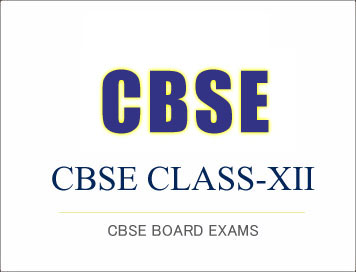(Download) CBSE Class-12 Sample Paper And Marking Scheme 2019-20 : Psychology
Disclaimer: This website is NOT associated with CBSE, for official website of CBSE visit - www.cbse.gov.in

(Download) CBSE Class-12 Sample Paper And Marking Scheme 2019-20 : Psychology
Sample Question paper
Psychology-(037)
Class-XII (2019-20)
Time allowed: 3 hours
Full marks: 70
General instructions
All questions are compulsory and answers should be brief and to the point.
Marks for each question are indicated against it.
Question Nos. 1-17 in Part A are objective type questions carrying one mark each. You are requested to answer them as directed.
Question Nos. 18-21 in Part B are very short answer type questions carrying two marks each. Answer to each question should not exceed 30 words.
Question Nos. 22-24 in Part C are short answer type I questions carrying three marks each. Answer to each question should not exceed 60 words.
Question Nos. 25-30 in Part D are short answer type II questions carrying four marks each. Answer to each question should not exceed 100 words.
Question Nos. 31-32 in Part E are long answer type questions carrying six marks each. Answer to each question should not exceed 200 words.
PART A
Q1 Learning alphabets and digits is an example of simultaneous processing. True/False
Q2. Calculate the MA of a 10-year-old boy who has an IQ of 120.
Q3. Ramesh is aspiring to head his company. He is very motivated and works hard. However, he is unable to relax and feels he is always short on time. This is an example of______ personality.
(a).Type B
(b).Type A
(c).Type D
(d).Type C
Q4. Children with high _________ self-esteem are more liked by their peers.
(a) academic
(b) athletic
(c) physical appearance
(d) social
Q5. __________ are abilities for adaptive and positive behaviour that enable individuals to deal effectively with the demands and challenges of everyday life.
Q6. Ramya is being provided with books and uniforms by the school. Identify the kind of support that she is receiving.
(a) Informational Support
(b) Tangible Support
(c) Emotional Support
(d) Positive Support
Q7. A soldier from the army reported paralysis of his right hand. On investigation, no neurological cause could be identified. Name the disorder he is suffering from.
Q8. Rohit believes he is a secret agent and that a network of spies communicates with him through messages sent directly into his head. Identify the type of delusion he is experiencing.
(a) Delusion of reference
(b) Delusion of control
(c) Delusion of grandeur
(d) Delusion of persecution
Q9. Choose the features of attitudes from the options given below:
(a) Extremeness and Centrality
(b) A-B-C Components
(c) Schemas and Stereotypes
(d) Values & Beliefs
Q10. The Nazis committed atrocities against the Jews. This is an example of ___________.
(a) Prejudice
(b) Discrimination
(c) Stereotype
(d) Scapegoating
Q11. ________ and __________ are two alternative therapies. 1
Q12. A collection of people who may be present at a place by chance is called a__________.
Q13. The school dramatics team is in the final stage of presenting their play. Identify the stage of group formation the team is at.
(a) Forming
(b) Storming
(c) Norming
(d) Performing
Q14. The minimalistic perspective suggests that the physical environment exists mainly for use by human beings. True/False
Q15. You were interviewed by your school selection team for the post of head boy/head girl. Identify the interpersonal distance in this situation.
(a) Intimate distance
(b) Public distance
(c) Personal distance
(d) Social Distance
Q16. _____________ means that your behavioural expressions are consistent with what you value, the way you feel and relate to your inner self-image.
(a) empathy
(b) positive regard
(c) self-concept
(d) authenticity
Q17 A major advantage of the observation method is that the events being observed are subject to bias due to the feelings of the observer involved. True/False
Click Here To Download Full Sample Paper
Click Here To Download Full Marking Scheme
CBSE (Class XII) Previous Year Papers Printed Books
<<Go Back To Main Page
Courtesy: CBSE
